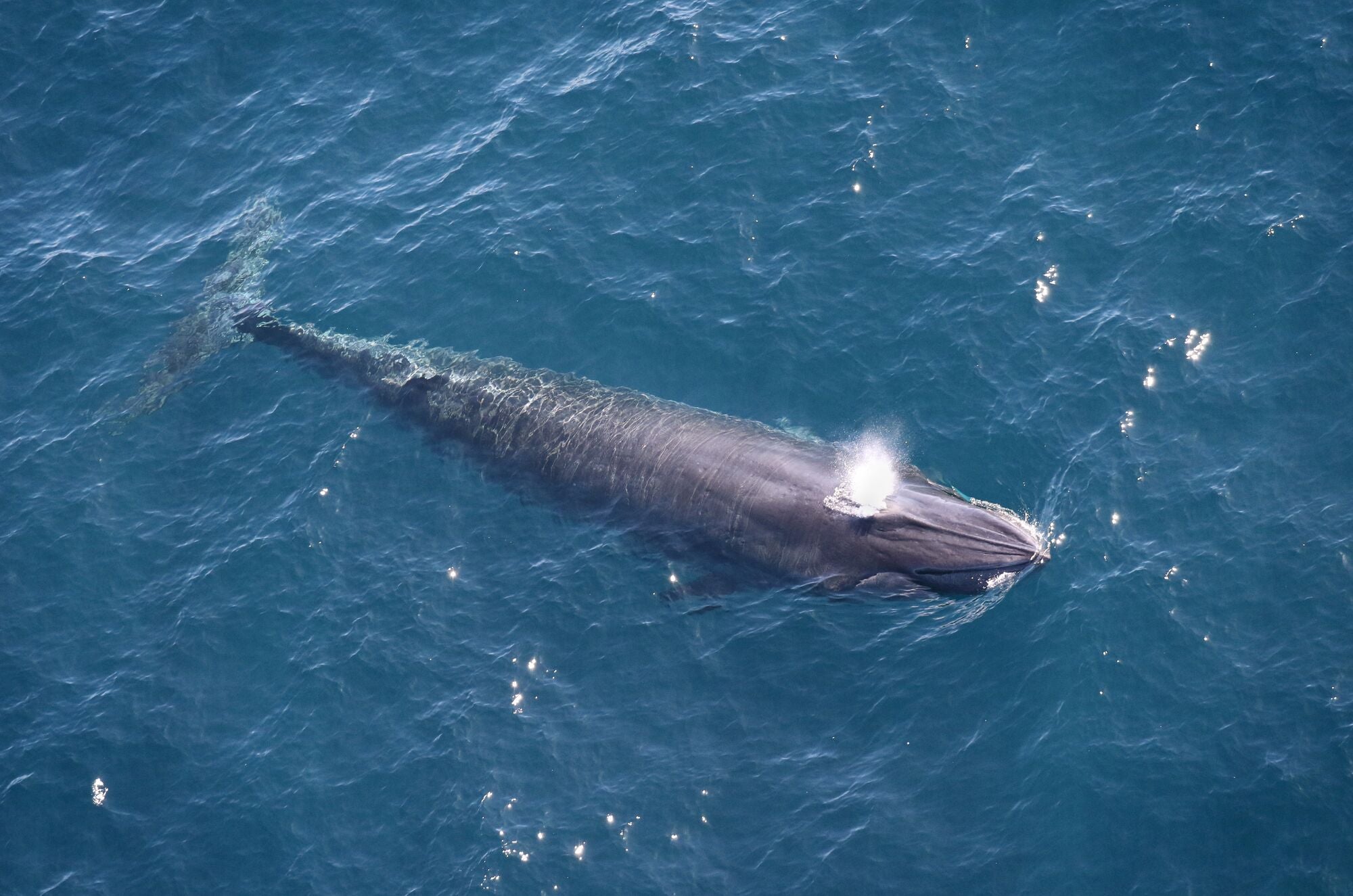Groups Sue to Protect Critically Endangered Gulf Rice’s Whale From Oil and Gas Impacts
New federal biological opinion fails to address harm from fossil fuel drilling in the Gulf
Contacts
Chris Eaton, Earthjustice, ceaton@earthjustice.org
Ian Brickey, Sierra Club, ian.brickey@sierraclub.org
Shaye Skiff, Friends of the Earth, kskiff@foe.org
Joanie Steinhaus, Turtle Island Restoration Network, joanie@tirn.net
Kristen Monsell, Center for Biological Diversity, kmonsell@biologicaldiversity.org
Four conservation groups filed suit today to properly protect rare species, including Rice’s whales and Kemp’s ridley sea turtles, from being harmed or killed by fossil fuel drilling and exploration in the Gulf of Mexico.
Earthjustice filed suit on behalf of the Sierra Club, the Center for Biological Diversity, Friends of the Earth, and the Turtle Island Restoration Network.
Today’s lawsuit against the National Marine Fisheries Service says that a newly released biological opinion that’s required under the Endangered Species Act is inadequate. The Fisheries Service was required to complete this new biological opinion after a federal court found the previous biological opinion unlawful.
Under the law, before the Department of the Interior can lease areas of the Gulf to oil and gas drillers or authorize drilling activities, the Fisheries Service must first assess how threatened and endangered species, such as the Rice’s whale, are likely to be harmed. The Fisheries Service also must require mitigation to avoid or minimize harm to protected marine species.
“Despite the previous court decision, the Fisheries Service continues to turn a blind eye to the risks that offshore oil and gas pose to the Gulf’s environment and imperiled species,” said Earthjustice Senior Attorney Chris Eaton. “The law requires that marine species get protection, and this biological opinion doesn’t provide it.”
The biological opinion released today allows a stunning amount of harm to Gulf species. The Gulf is the year-round home to the critically endangered Rice’s whale, a species with fewer than 100 individuals remaining on Earth. It is a global sea turtle hot spot, home to five of the world’s seven sea turtle species — loggerheads, leatherbacks, hawksbills, Kemp’s ridleys, and green sea turtles.
In the new biological opinion, the Fisheries Service admits that vessel strikes alone will kill nine Rice’s whales and seriously injure three more over the next 45 years. But rather than require concrete measures to protect the whales, the biological opinion relies on vague future promises.
It also puts the Gulf’s sea turtles at risk. The Fisheries Service estimates the activities will kill or seriously harm several hundred sea turtles every year through ship strikes, explosives, air gun blasting, marine debris, and oil spills.
Even these numbers underestimate the harm that oil and gas activities pose to these species and the broader Gulf ecosystem. The biological opinion dismisses the possibility of another catastrophic oil spill like the 2010 BP Deepwater Horizon disaster, which killed or seriously harmed more than 100,000 animals protected under the Endangered Species Act.
In 2023, the Fisheries Service added the Gulf Rice’s whale to an extinction watchlist, called “Species in the Spotlight,” identifying 10 species that government scientists say need “immediate, targeted actions” to “stabilize the population and prevent extinction.” The Fisheries Service has also concluded (in the previous biological opinion and elsewhere) that losing even a single breeding female could collapse the population, and more than 100 scientists warned that unless the U.S. does more to protect the whales, we could witness the first human-caused extinction of a great whale species.
“The Trump administration is working overtime to give corporate polluters free rein over our lands and waters, and imperiled wildlife and Gulf ecosystems are paying the price,” said Sierra Club Senior Attorney Devorah Ancel. “If the administration gets its way, it could be disastrous for the last remaining Rice’s whales on the planet. Times like this remind us why the Endangered Species Act has been so critical for the last five decades, and we will see the Trump administration in court to defend it.”
“It couldn’t be any clearer that Rice’s whales and these struggling sea turtles need protection from the oil and gas industry to survive. This latest attempt still fails miserably to provide a realistic picture of what will keep these Gulf animals from going extinct,” said Kristen Monsell, oceans legal director at the Center for Biological Diversity. “The Fisheries Service has ignored science, history, and common sense in determining how much these poor species can handle. Fossil fuel extraction isn’t worth wiping out treasured wildlife who are critical to the marine ecosystem.”
“The Trump administration’s latest biological opinion is yet another handout allowing Big Oil to destroy the Gulf of Mexico and eradicate the critically endangered Rice’s whale from existence,” said Hallie Templeton, Legal Director at Friends of the Earth. “The federal court’s 2024 order reaffirmed why the Endangered Species Act has been paramount for decades, acting as the last line of defense standing between vulnerable species and irreversible harm from industrial activities like oil and gas drilling. Today’s lawsuit makes it crystal clear: we are not backing down and will keep doing all we can to defend the Endangered Species Act and hold the federal government accountable.”
“The Gulf’s endangered whales and sea turtles will not survive the Trump administration’s assault on our environmental laws if we don’t stop him,” said Joanie Steinhaus, Turtle Island Restoration Network Director of Oceans. “It’s not just turtles and whales — our own survival is intricately entwined with stopping the climate catastrophe caused by fossil fuels and ensuring healthy ocean ecosystems for future generations.”

Additional Resources
About Earthjustice
Earthjustice is the premier nonprofit environmental law organization. We wield the power of law and the strength of partnership to protect people's health, to preserve magnificent places and wildlife, to advance clean energy, and to combat climate change. We are here because the earth needs a good lawyer.